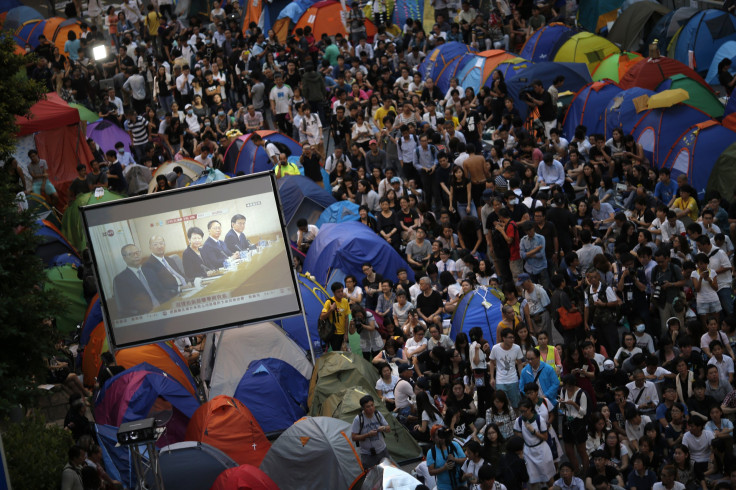Hong Kong Student Leaders Consider Ending Protests, Will Decide Within Next Week

Hong Kong’s student leaders said Thursday that they are considering ending their two-month long pro-democracy protests, which was part of the Occupy Central movement and drew thousands of supporters at its peak. The comments follow warnings from the city's authorities following violent clashes and the original founders "surrendered to the police."
Members of the Hong Kong Federation of Students reportedly said that they will decide within the next week whether to call off the protests despite not having achieved their objective of securing full democratic rights to elect the city's leadership. Protesters are reportedly left with few options after a recent attempt to reunite supporters and surround government buildings failed and resulted in violent clashes with police. On Wednesday, Occupy Central founders turned themselves over to police, a day after urging protesters to withdraw.
"Some people wish to stay until the last minute and we respect that - but we cannot occupy without meaning," Federation spokeswoman Yvonne Leung reportedly said. "We will decide within the next week whether to stay or retreat.
“We’ve tried both the soft and hard way, we’ve negotiated with them, and we’ve tried to blockade the government headquarters,” she added, according to The New York Times. “But the government has been unwavering, so we have to make a decision.”
Some members of Scholarism, another student group, went on a hunger strike in an attempt to force the government to resume talks over the students' demand for a fully democratic election in 2017. But, the government reportedly said that their demand for an open nomination could not be granted.
Last week, Hong Kong police successfully removed barricades and tents from a protest site, following a court order, in Mong Kok district that had been blocked by pro-democracy protesters for several weeks. On Monday, Hong Kong Chief Executive Leung Chun-ying had warned protesters not to mistake the "police's tolerance for weakness.”
Meanwhile, Lord Justice Leonard Hoffmann, a non-permanent judge of the city’s top court, said that protesters who have surrendered should be punished leniently, the South China Morning Post reported Thursday. “When it comes to punishment, the court should take into account their personal conviction and conscience.”
© Copyright IBTimes 2024. All rights reserved.





















